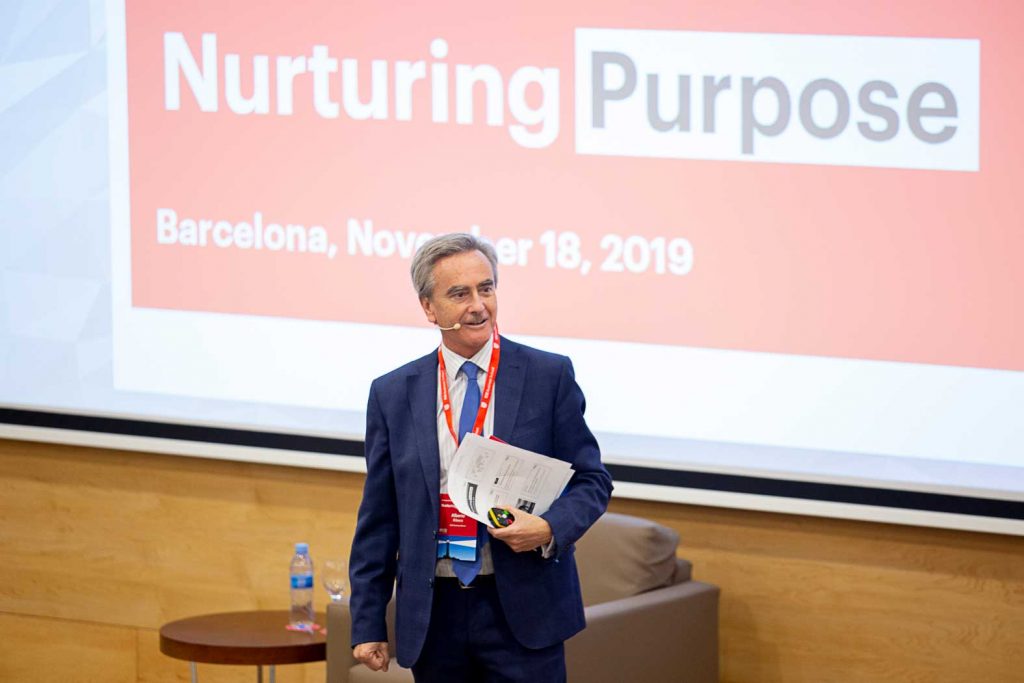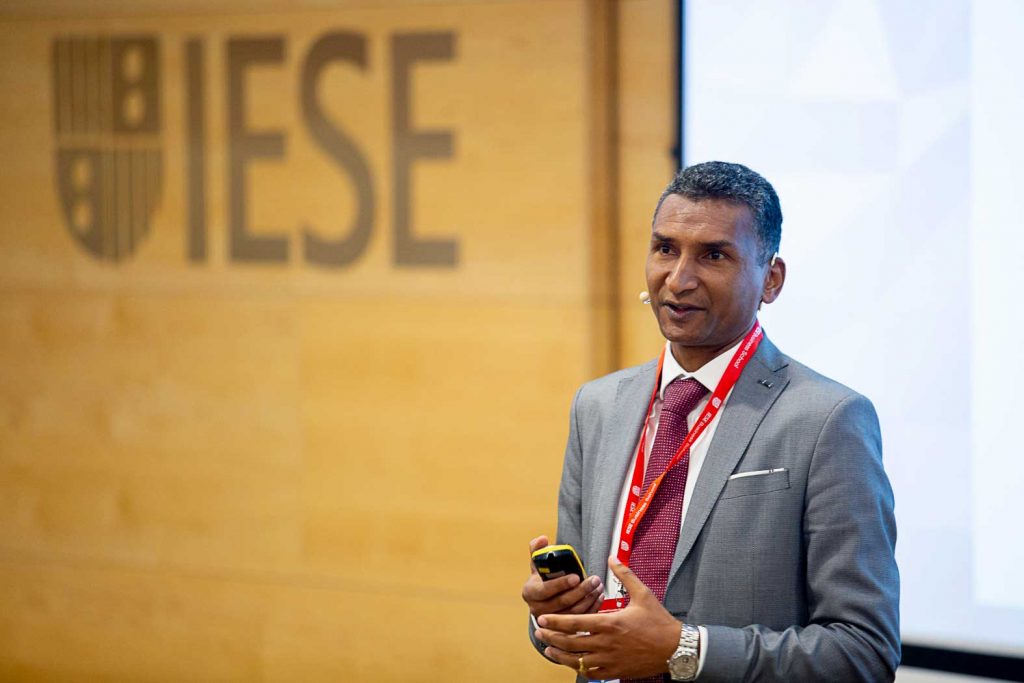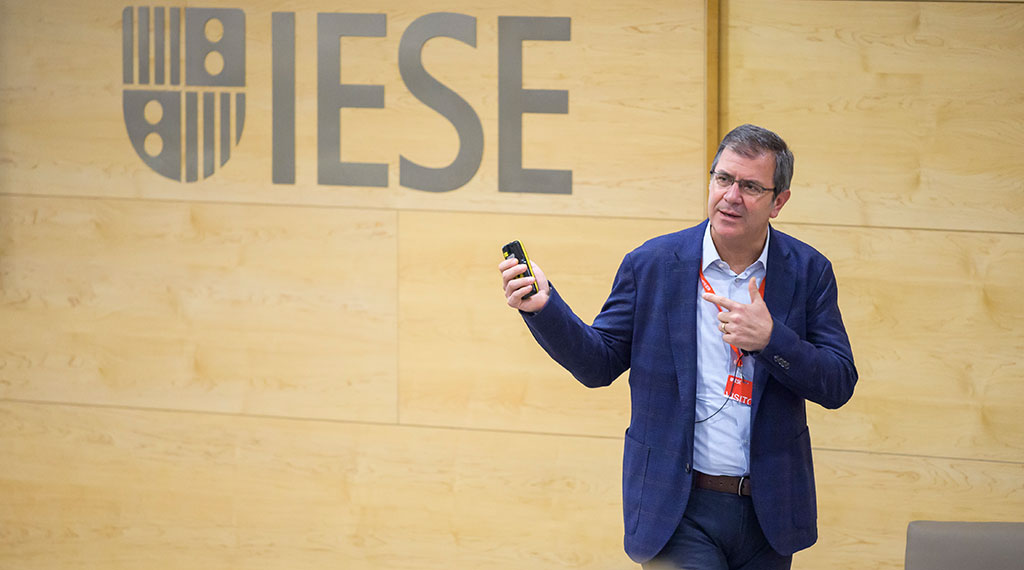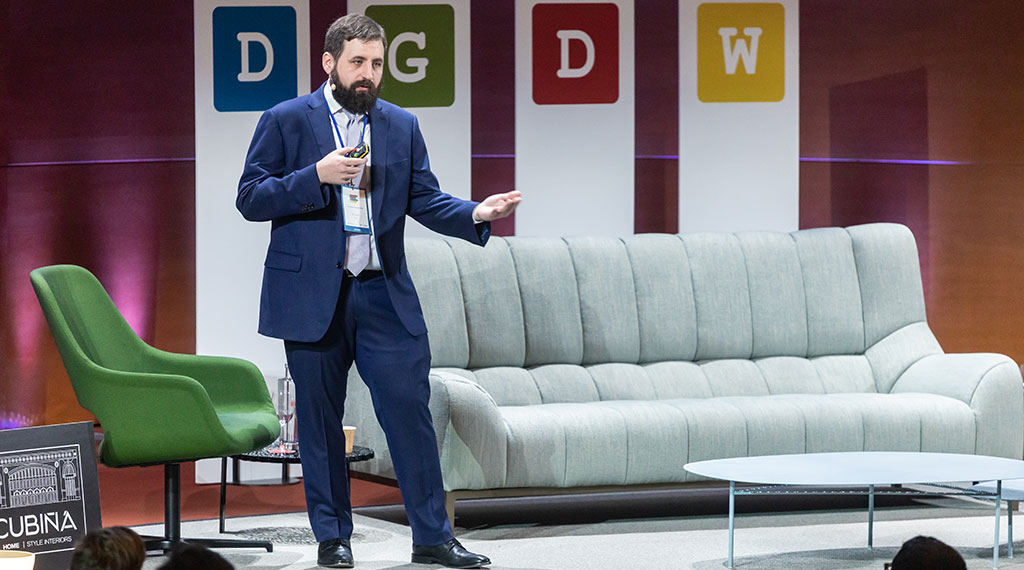Stories
“Your purpose comes from your heart and head”
4th International Executive Coaching Symposium looks at finding meaning in work and life
Nick Craig, president of the Core Leadership Institute.
Photo: Georgina Ureña
November 19, 2019
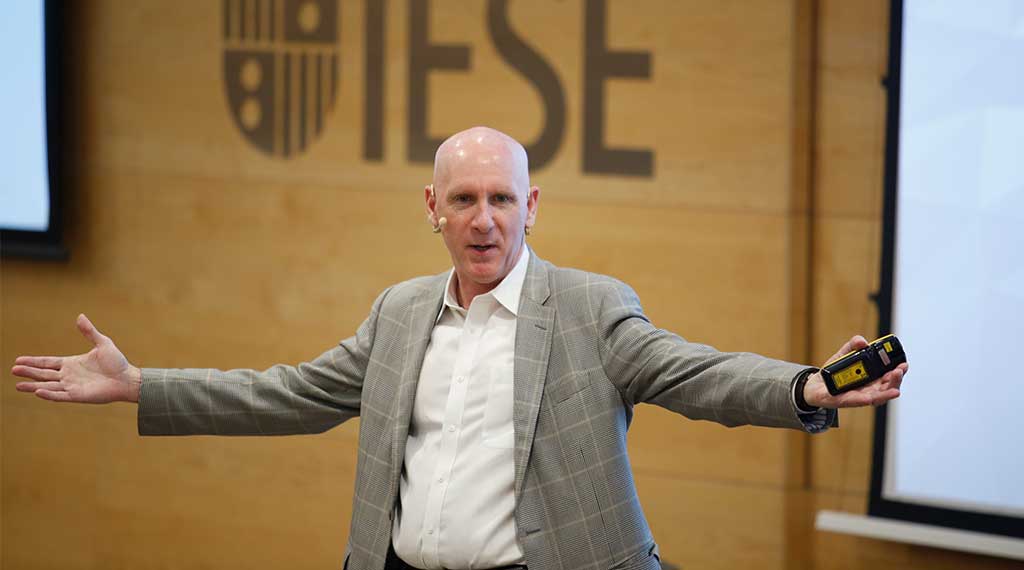
As corporations and organizations put more emphasis on purpose in business, many individuals are also more actively looking to identify purpose in their lives and work.
“Your purpose does not care what makes sense to the rest of the world,” said Nick Craig, president of the Core Leadership Institute and author of the book Leading from Purpose: Clarity and the Confidence to Act When It Matters Most. “It comes from your heart and your head and says ‘OK, hold tight, I’ve got to go on this journey.’”
Craig gave a keynote speech at IESE’s 4th International Executive Coaching Symposium, a day-long event on the Barcelona campus that also included panel discussions and workshops. Professor Alberto Ribera was academic director of the event, organized by IESE’s Coaching Unit and Estíbalitz Ortiz, its executive director.
But why is purpose becoming so popular all of a sudden, given that it is a centuries-old idea? Craig said the answer may lie in the fact that our external (geo-political) world is crumbling around us, making it all the more necessary to look within for certainty.
“Purpose is the ultimate antidote to uncertainty,” he said, setting the inner whisper of purpose in stark contrast to an external context in which CEOs come and go.
Purpose therefore makes regular appearances in different lists on authentic leadership. And so, if to be an authentic leader or a fulfilled employee you need to find your purpose, how do you go about it?
Tapping into your purpose
Professor Vincent Ogutu of Strathmore University noted that research has shown that when we talk about purpose at work, there are three types of meanings: financial rewards, status/achievement/advancement and fulfilment/impact.
He said that none of these is negative per se, though they can be if we put all of the emphasis on one definition of purpose. In addition, people may draw purpose from other aspects of their lives, outside of their careers, and usually frustration and dissatisfaction at work happen when there’s a discrepancy in purpose between life and work.
Ogutu said that many people associate finding your calling with a fortunate few, but that for most people finding their calling is a gradual process, and one that coaches and leaders can help their employees to find by considering three questions:
- Is the meaning of work an employee is looking for individual or collective? Some people want their work to fit into an external purpose.
- Is the employee’s calling found or crafted? Most people can’t change jobs very easily, but they can craft it on three levels: cognitive crafting (defining a higher purpose for their position); task crafting (incorporating a personal touch and individual capabilities to their task); and relational crafting (creating a valuable personal network).
- How far has the employee gone in the search of his/her calling?
For Craig, finding purpose is a mix of personal and professional.
First, we need to befriend what he called our curious kid. While most of us have the curious kid inside, “we put it in the boot for safe keeping,” he joked. When we put it in the driving seat, we let it play and become a better leader.
But that alone will not lead us to our purpose. Craig suggests asking yourself what would really be missing if you weren’t in the room. What is the unique gift you bring to the world? No child, tree, rock or twin is the same as another. But why? Ponder this, then make parallels with yourself, he advises.
Beware misleading purposes
It’s easy to mistake purpose for values, Craig said, which are equally valid but not the same thing. It is also a common error to lump purpose together with seemingly virtuous actions. “Saving the whales” is not purpose, Craig assured.
Purpose is also not to be confused with happiness. “It’s not the case that the more kids people have the happier they become, but rather that the more children they have can lend them a greater sense of fulfilment and meaning.”
But why confuse personal and professional in this discussion? Because the lines between personal and professional life are today so blurred that people’s identity is inseparable from their work.
As such, Craig said that the second step after defining your purpose is to make a Purpose Impact Plan asking “how are you going to live this thing?” It should be an amalgam of personal and professional goals.
Purpose edges you closer to your dreams
The closest most of us get to our dreams, said Craig, is putting our costume on. This costume might be where we went to school, or where we go to work. Ironically, the only costume we will never be able to take off is our purpose.
Finally, Craig noted, purpose will get you places other things won’t. In that sense it is one of the most democratic and accessible among leadership values.
